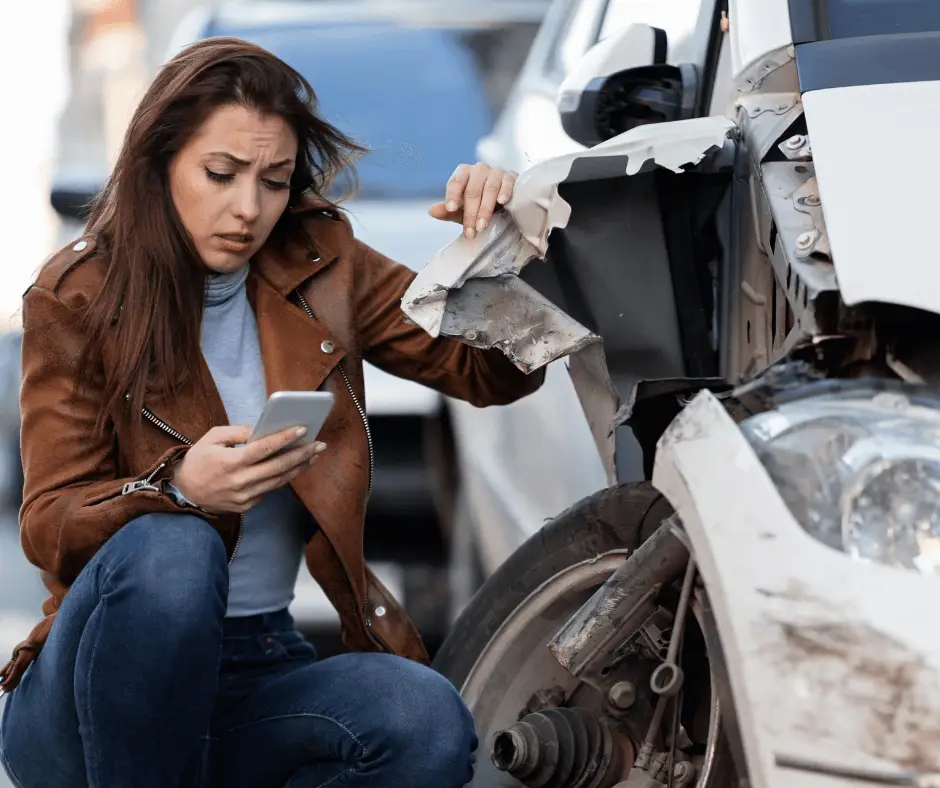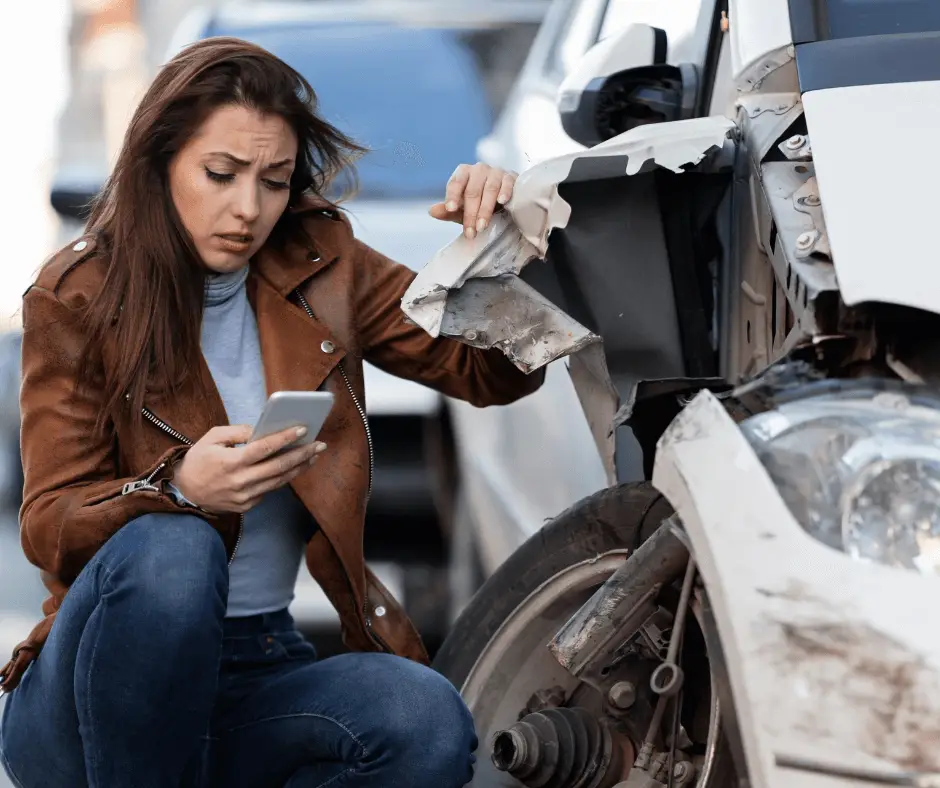Getting into a car accident is one of the most stressful things that can happen, especially if someone is hurt. In the heat of the moment, it’s easy to feel overwhelmed and unsure of what to do next. But knowing the right steps to take can help protect your rights and make sure everyone gets the help they need.

1. Check for Injuries First
The first thing to do is take a deep breath and check if anyone is injured. Your safety and the safety of others are the top priorities. If someone is hurt, call 911 immediately. Don’t try to move injured people unless they’re in immediate danger, like if there’s a fire. Moving them could make injuries worse.
Even if injuries seem minor, it’s better to have a medical professional take a look. Some injuries, like whiplash or internal bruising, might not show symptoms right away. Getting checked out on the spot ensures that any hidden injuries are caught early.
2. Move to a Safe Area if You Can
Once you’ve checked for injuries, the next step is to get to safety. Accidents can happen on busy roads, and the last thing you want is for another crash to happen while you’re still dealing with the first one. If your car is drivable and there are no severe injuries that prevent moving, try to get your vehicle to the side of the road. Turn on your hazard lights to let other drivers know something is wrong.
If you can’t move your car, it’s crucial to stay inside it with your seatbelt on. This might seem counterintuitive, but staying in the car is often safer than standing outside where you could be hit by other vehicles. If you must get out, do so with extreme caution and only if there’s a safe area to move to, like a sidewalk or a median away from traffic.
If you have safety cones, flares, or warning triangles in your car, set them up if it’s safe to do so. These can alert other drivers to slow down and give you space, which is especially important at night or in low-visibility conditions like fog or heavy rain.
Remember, the goal here is to avoid further accidents and injuries. By moving to a safe area, you reduce the risk of more harm to yourself, others involved in the accident, and other drivers on the road.
3. Call the Police for Help
Once everyone is safe and out of immediate danger, it’s time to call the police. Even if the accident seems minor, it’s crucial to have an official report. The police will document what happened, which can be important if there are any disputes later on about who is at fault. This report can be a key piece of evidence when dealing with insurance companies or if legal action becomes necessary.
When the officers arrive, give them an honest account of what happened. Stick to the facts—avoid guessing or making assumptions about what caused the accident. If you’re not sure about certain details, it’s okay to say so. The police will ask questions to understand the situation, and they may talk to witnesses or other drivers involved. Remember, it’s their job to document the scene as accurately as possible.
After the officers have gathered all the necessary information, they will create an accident report. Make sure you get the name and badge number of the responding officers, and ask how you can obtain a copy of the report. This document can be vital when filing an insurance claim or if you need to seek legal assistance later on.
Sometimes, the other driver may try to convince you not to call the police, especially if the damage seems minor. However, it’s always in your best interest to have an official report. Even a small fender bender can turn into a bigger issue later if injuries become apparent or if the other driver changes their story. Having that police report helps protect your rights and ensures there’s an official record of what happened.
4. Exchange Information with the Other Driver and Witnesses
After speaking with the police, it’s time to exchange information with the other driver. This step is crucial, as you’ll need their details to file an insurance claim and potentially seek legal assistance later. Be sure to gather the following information from the other driver:
- Full name and contact information
- Insurance company name and policy number
- Driver’s license number
- License plate number
- Make, model, and color of their vehicle
It’s also important to collect contact information from any witnesses who saw the accident. Their statements can be helpful if there are any disputes about what happened. Witnesses can provide an unbiased account of the events, which can support your case if you need to involve insurance companies or take legal action.
Keep the conversation with the other driver polite and calm. Avoid discussing who was at fault or making any statements that could be used against you later. Simply exchange the necessary details and let the police handle the rest. Remember, anything you say at the scene could be taken into account by insurance companies or in court, so it’s best to keep it simple.
5. Take Photos and Notes of the Accident Scene
Once you’ve exchanged information, take a moment to document the scene. Use your phone to capture pictures from different angles, showing the damage to the vehicles, the position of the cars, and any surrounding factors like road signs or traffic lights. You might also want to include any skid marks or debris on the road. These photos can provide a clear picture of what happened and can be useful when you need to prove what occurred.
While photos are essential, jotting down some quick notes is also a good idea. Include details like the time of day, weather conditions, and anything unusual that you noticed. Your memory of the event is freshest right after it happens, so writing it down now will help you recall the events later if needed. This documentation can be crucial when dealing with insurance companies or if you need legal help to ensure your side of the story is clearly understood.
6. Seek Medical Attention Right Away
Even if you feel fine, it’s important to get checked out by a medical professional as soon as possible. Some injuries, like whiplash or internal injuries, might not show symptoms immediately but can cause serious problems if left untreated. A doctor can identify these injuries early and start treatment right away.
Seeking medical attention is not only important for your health but also for any legal claims. Medical records provide evidence that you were injured in the accident. This documentation is key if you decide to pursue compensation for medical expenses, lost wages, or pain and suffering. Make sure to keep copies of all medical reports, treatment plans, and bills, as they can be used to support your case.
7. Notify Your Insurance Company
After getting the necessary medical care, contact your insurance company to report the accident. Give them the facts of what happened but be careful about how you describe the accident. Stick to the basics: the location, the time, the vehicles involved, and any injuries. Avoid saying anything that could be seen as admitting fault, like “I didn’t see the other car” or “I was in a hurry.”
Insurance companies will use the information you provide to determine coverage and liability. If you’re unsure about what to say, or if the other driver’s insurance company contacts you, it might be best to speak with a legal professional first. This can ensure that your rights are protected and that you don’t inadvertently say something that could be used against you.
8. Know When to Seek Legal Assistance
Accidents can get complicated, especially when someone is injured, or there are disputes about who was at fault. If the other driver is blaming you, their insurance company is giving you the runaround, or your injuries are more severe than you initially thought, it might be time to talk to a lawyer. Legal assistance can help you understand your options, handle negotiations with insurance companies, and fight for the compensation you deserve.
Many personal injury lawyers offer a free consultation, so you can discuss your case without any obligation. Plus, most work on a contingency basis, which means you only pay if they win your case. A lawyer can handle the paperwork, deadlines, and legal processes, so you can focus on recovering.
If you’re not sure whether your situation qualifies for legal aid, it’s worth making a call to find out. Speaking with an expert can give you peace of mind and ensure that your case is handled correctly from the start.
